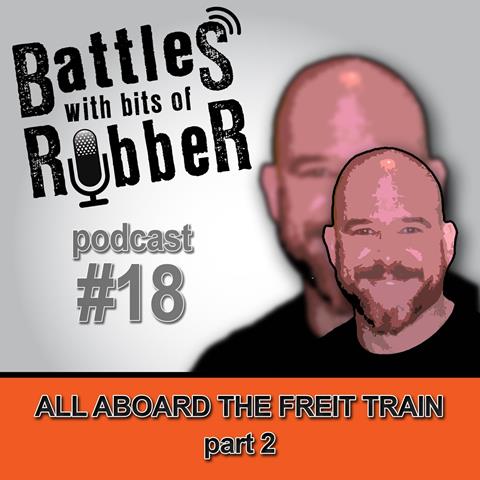 In part 2 of our discussion, Rob Freitas talks about the value of knowing about the unknowns.
In part 2 of our discussion, Rob Freitas talks about the value of knowing about the unknowns.
He sheds some light on the importance of knowing to look at what was before and honours great artists like Gil Liberto (http://www.imdb.com/name/nm0508847/) who does incredible work for the likes of at Joel Harlow (Star Trek, anyone?).
Check out this Vanity Fair article about the makeup work on Star Trek: http://www.vanityfair.com/hollywood/2017/02/star-trek-beyond-makeup.
The blog post for this one is here: http://www.learnmakeupeffects.com/all-aboard-the-freit-train-part-2/
When going to trade shows and being asked to speak, Rob likes to share what he has known but he is there to be fed knowledge as well as to feed others. He doesn’t want to be the subject - rather he cares about the craft and wants you to care too.
Thinking about provenance and what went before is a humbling way of uncovering the history of your subject matter, and is utterly fascinating. When you think about the makeups from the original Wizard Of Oz from 1939, the list of makeup crew reads like a who's who of the makeup industry - Jack Dawn, Max Factor, Cecil Holland, Robert Schiffer, William Tuttle, Charles Schram...
Two more names that pop up are the perhaps little know Josef Norin (http://www.imdb.com/name/nm0635364/?ref_=ttfc_fc_cr33) and his son Gustaf ('Gus') Norin (http://www.imdb.com/name/nm0635362/?ref_=ttfc_fc_cr32) who were Swiss artists who brought their talents over from a background in sculpting and moulding small moulds for jewellery. Gustaf was father of John and Robert Norin, both makeup artists with an impressive line-up of screen credits.
 Another aspect we touch on is how many of us working can count on the lack of distractions we had from the internet. Whilst it is fair to say that the internet brings untold knowledge to our fingertips, it also means we need to learn how to focus and channel what is important, rather than allow meaningless information to steal our time away. Social media makes people aware of what others may think of them or their beliefs…this wasn't something we grew up with in the pre-internet age. It is certainly shaping how people learn, and it's important to identify what really matters so one can harness that information and power into a tangible benefit rather than an endless distraction.
Another aspect we touch on is how many of us working can count on the lack of distractions we had from the internet. Whilst it is fair to say that the internet brings untold knowledge to our fingertips, it also means we need to learn how to focus and channel what is important, rather than allow meaningless information to steal our time away. Social media makes people aware of what others may think of them or their beliefs…this wasn't something we grew up with in the pre-internet age. It is certainly shaping how people learn, and it's important to identify what really matters so one can harness that information and power into a tangible benefit rather than an endless distraction.
Rob mentions a number of artists work, and links are provided below:
- Jason Barnetts' awesome documentary of Charlie Gemora: Genius Monkeyman. You can rent/buy to watch it here: https://vimeo.com/ondemand/charliegemorauncredited/153530263
- Gunnar Ferdinandsen (http://www.imdb.com/name/nm0272256/) Some of his credits include: • Ghostbusters • Total Recall • The Thing • Legend
- Wizard of Oz makeup artists: http://www.imdb.com/title/tt0032138/combined
- Gino Acevedo http://www.imdb.com/name/nm0009707/ https://vimeo.com/92782082
- Sergei Koudriautsev http://www.imdb.com/name/nm1165713/
Thanks again for checking this out! If you enjoyed this podcast, please support us if you can by:
- Sharing the podcast on Social Media
- Subscribing to the podcast on iTunes or Stitcher
- Review us to let others know it's worth their time!